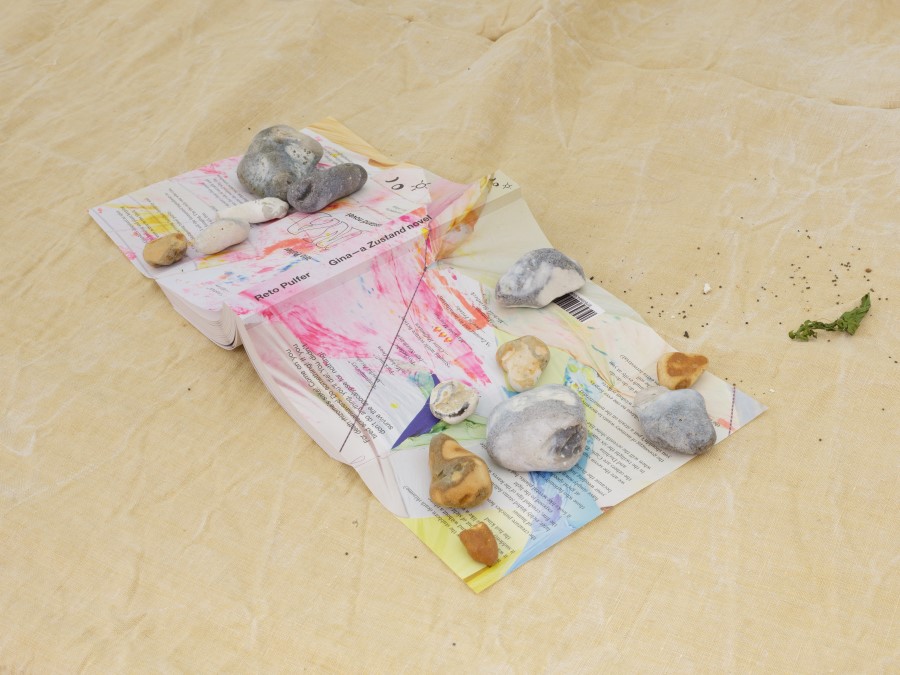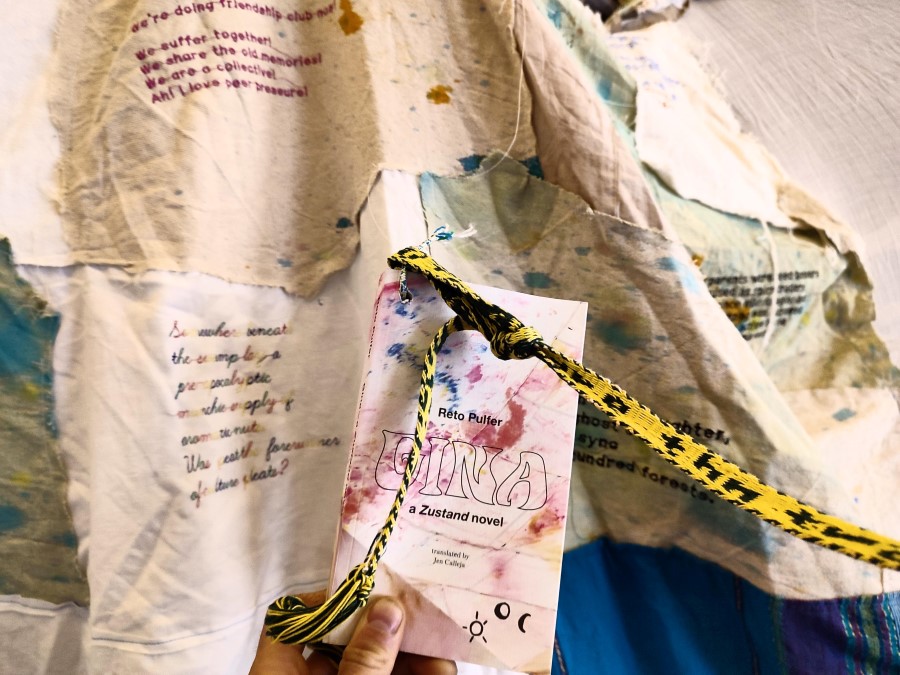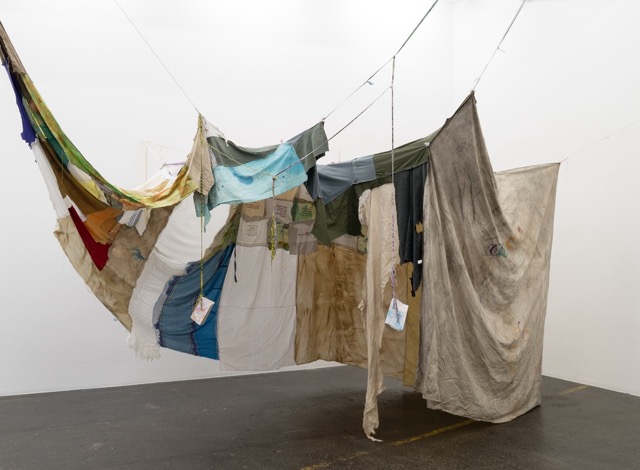
"For death rhizome's sake! Come on you tired screensavers! Do something! If you don't do anything, you'll die! You didn't survive the apocalypse for nothing!"
Reto Pulfer: Gina, ein zustaendiger Roman
978-3-96436-033-5, German, 16 euros, Designed by HIT, 298 pages with color images, Bom Dia Books
Buy it here

"For death rhizome's sake! Come on you tired screensavers! Do something! If you don't do anything, you'll die! You didn't survive the apocalypse for nothing!"
"The cans! Get the cans!" So I packed up this food as well. Then the seeds and kernels that could be transformed with clean water into sprouts and consumed in subterranean cellars, air bunkers, in moving flight bunkers while travelling. "The structure of the world is collapsing," she said. Then we just fled and were among the few survivors of the dehydrated landscape. I belonged to the flight and the flight belonged to me, the sense of being pursued is something that has not left me until today, since I later tried to give things a different trajectory and have been sought out by the new organizers of survivors until today. Gina became Ephemera. I looked around and saw how everything shook, and everything collapsed in a state of unbelievable marvel. The fixed, the concrete, the walls, things became fissured: everything fell apart. "Gina, Gina!" I was asked to pay attention, to prepare, the end of the world.
(Excerpt translated by Haus der Kulturen der Welt, Berlin, for the exhibition "100 Jahre Gegenwart. Der Auftakt", 2015)


tent with embroidery and woven bands of text from the novel
DEMENTIA
Now that Gina had her new sweet little private secret, timelessness and the only access to it, she could freely choose to go there again. So she went, in the dry cold desert climate, through the foaming sand that came in threads of wind coloring her lips and cheekbones austere, through valleys of dehydrated landscape, again and again pulling the rope wriggling behind her, the wind drawing irregular patterns so that no one could follow her footsteps as she made her way to the secret place. Yet again, it was so cleverly hidden, that no one would recognize a constructed place, conceived by human-kind, among that randomness of stones lying around, of cracks and sand towers. She arranged the fingers of her hands into a complicated shape wherein the opposite fingertips of one hand would touch selected fingertips of the other hand. For example, the ring finger of the right hand was placed on the tip of the index finger of the left hand. This way she made her key, and the remnants lying in the desert readily formed a gate to access the temple of timelessness. So she went in, and time stood still. This time she wished she had had a previous life: the life of one of her ancestors, who was now suffering from dementia. Interestingly enough, in no time she could access her memories of her life as that person. "I would love to cook and not confuse salt with sugar. If only salt was brought from high valleys and had a glow of fine pink, or a deep black ashy tint. If only sugar was brownish, lumpy, clammy and alive. If only both weren't so white and alike. But here I am in my makeshift kitchen almost not daring to make things but making them anyway, badly and clumsily, out of arrogance. Making them in such a way that the old man with whom I have shared this life stops eating, spits out the food I made and goes out looking for another meal. The bleating, chuckling, ringing, rejoicing animal-like creatures on the other side of the glass pane, I recognize them—consciously—as my childhood. Those were the kind of animals which huddled together, human-like, sharing their time. And just now, a young face, so similar to mine, enters this kitchen and talks to us, but so intensely that it dawned on me that, at some point, we were familiar.
"The weariness of my awareness has something pleasant to it, a state of intoxication that comes from not having to know things. It gets foggy. The labels usually attached to everything dissolve, they get lost. A nothingness takes hold of what surrounds me, but unlike what happens in a state of intoxication, this a nothingness I am not obliged to fill in. I see the present, because everything leaves me blank. Names are reduced to material and momentariness. Memories are released because I cannot hold them, it's like a purifying bath that rinses and rejuvenates me from within, leaving me sensual and polished, a matte gray exterior remains, but inside I feel reflexes of fresh white. Then, well then, now I see myself again: Gina. Timelessness has ceased and the state of dementia recedes, it is time to go."
She woke up and saw herself standing on a heap of stones, which now, and again, looked quite natural and normal. No remaining ruins where once stood architecture. Without trembling or shuddering, it was now, and again, as it was before. Only time had multiplied in her field of experience, where she could now slip into the minds and souls of others. She found herself surrounded by that dehydrated landscape and hurried home without leaving a trace, before she could realize, again, that she was merely, mostly, herself.
(Excerpt translated by Jose Roseira and Thomas Behrens for the exhibiton "States of Remembrance" at Forum Eugenio de Almeida, Evora, PT
Click here for a PDF in French with excerpts of both "Die Exzentriker" and "Gina"
(Excerpt translated by Patrick (Boris) Kremer for the exhibition "Die Loci der Ortie" at Centre international d'art et du paysage - Ile de Vassiviere, France, 2015.